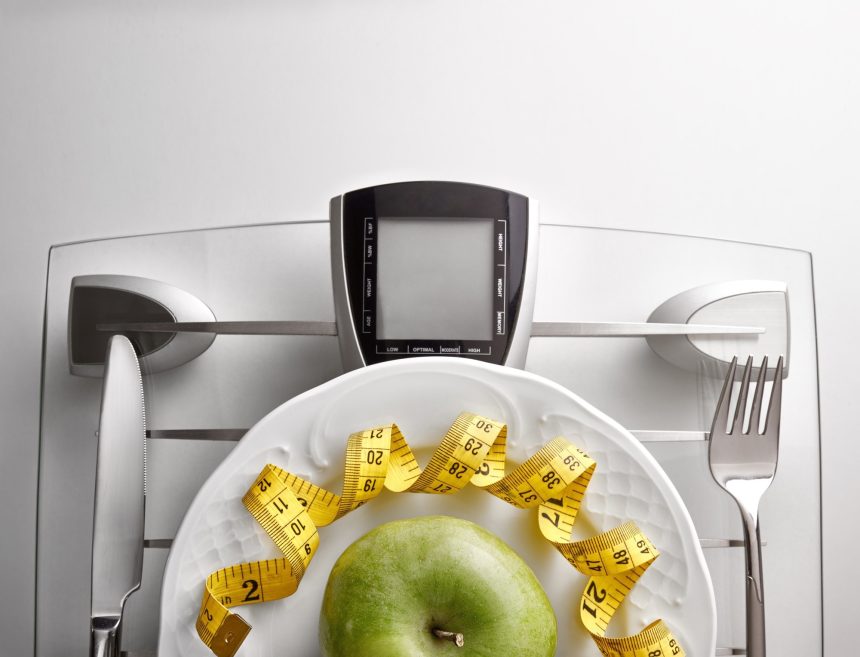More than one-third of adults in the US are considered obese—it’s a huge health issue that causes many health problems throughout life.
- 1. Stay Focused
- 2. Exercise Regularly
- 3. Count Calories
- 4. Don’t Deprive Yourself
- 5. Surround Yourself With Supportive People
- 6. Get Enough Rest
- 7. Avoid Alcohol Use
- 8. Meet With a Nutritionist
- 9. Keep an Eye on Your Weight
- 10. Put Down Your Phone While Eating
- 11. Keep a Food Log
- 12. If You’re Really Struggling, Seek Support
- Permanent Weight Loss Is Possible With These Tips
However, if you’ve recently lost weight, congratulations! You’ve broken free from obesity and are sure to be looking forward to living a healthier life.
But if you’ve recently lost weight, do you know how to keep it off? Permanent weight loss is certainly possible, but it doesn’t happen automatically—it’s a lifelong effort.
Want to learn more about how to keep off the weight? If so, keep reading to find 12 helpful strategies that can help you keep the pounds off—for good!
1. Stay Focused
If you want to lose weight for good, you might be surprised that it can be a mental challenge as much as a physical one. To keep the weight off, you need to stay focused.
After you’ve achieved your desired weight, it’s tempting to treat yourself or stop paying attention to the scale—however, for weight to stay off, you need to stay focused.
Sure, a treat now and again is fine, but stay focused on the bigger picture or the pounds might creep back on.
2. Exercise Regularly
To keep weight off, you need to exert more calories than you take in—or at least have an even balance. One of the best ways to burn off additional calories is, of course, exercise!
There are many benefits to exercise other than weight loss though. It’s a great way to relieve stress, build confidence, and spend time outdoors. This means it’s not only useful to keep off weight, but it’s also amazing for your overall health.
Find an exercise you love, such as walking, swimming, hiking, or gym classes, and stick with it.
3. Count Calories
Many people who are trying to keep the weight off find that counting calories can help. Either with pen and paper or with a free app like My Fitness Pal, there are plenty of ways to log the number of calories you consume each day.
As long as you know your daily calorie allowance, counting calories can help you feel more accountable. Plus, if you notice you have calories left at the end of the day, you’ll know it’s fine to indulge in a treat without feeling guilty.
4. Don’t Deprive Yourself
For your weight loss to be sustainable, you need to be able to enjoy life! If you constantly deprive yourself of your favorite foods, you’re likely to feel grumpy, hungry, and annoyed.
If you eat a balanced diet the majority of the time, it’s perfectly ok to enjoy cheat meals! Don’t feel like you can never enjoy ice cream or burgers again.
However, if you feel like you’ve been eating the same foods for a while, you might want to change it up. See this article for a new weight loss program as it could give you some new ideas of what to eat.
5. Surround Yourself With Supportive People
One of our top permanent weight loss tips is to surround yourself with the right people. Imagine you’re working hard to exercise and eat healthy foods—but your friends are constantly partying or eating bad foods all the time.
This puts plenty of temptation in front of you that you don’t need. You don’t need to give up your friends, but you might want to expand your social circles to find more supportive people.
For example, why not try to make friends at the gym? It’s great to be around like-minded people, as you can support each other as you work towards your fitness goals.
6. Get Enough Rest
If you want to keep the weight off, try to get plenty of sleep. While it’s easier said than done, poor sleep is actually a huge risk factor for obesity.
Lack of sleep also leaves you agitated and tired, which can make it harder to make the right choices. If you’ve ever reached for an afternoon candy bar for a mid-afternoon hit of sugar, you know that being tired isn’t great for your health.
Aim for 7-8 hours of uninterrupted sleep per night.
7. Avoid Alcohol Use
Another danger to weight loss is frequent alcohol use, so limiting the booze can help you keep off the extra pounds.
Alcohol is basically just empty calories and sugar, meaning it provides no nutritional value. A few glasses of wine each night can quickly become a few thousand calories over a few weeks, which isn’t going to help with weight loss.
It’s also true that drinking lowers your inhibitions, meaning you’re more likely to make poor choices after a night out. It’s easy to order a pizza or indulge in unhealthy snacks after a night on the booze—plus, your hangover the next day might leave you reaching for comfort food.
Limiting your alcohol use is a good way to cut out excess calories from your diet.
8. Meet With a Nutritionist
One hard part about managing weight loss is the nutrition side of things. You need to eat enough food to have the energy to power through the day, but eating too much means you’re at risk of weight gain.
If you’re struggling to know what to eat for each meal, it can help to see a nutritionist. Based on your weight loss goals, preferences, and cooking habits, they can create a meal plan for you.
This makes it much easier to know what to eat for each meal since it’s been personally recommended to meet your needs. Some health insurance plans will cover a visit to a dietician or nutritionist, so you might not have to pay out of pocket.
9. Keep an Eye on Your Weight
It can sometimes be hard to notice small changes to your body, so try keeping an eye on your weight with a scale. You don’t need to weigh yourself daily, but once a week will provide a good overview as to how your weight is going.
Or, if you’d rather not own a scale, you can often judge your weight by how well your clothes fit.
Favorite jeans starting to feel tight? If so, that’s a clear indicator that you need to make some changes to your diet.
10. Put Down Your Phone While Eating
Many of us scroll on our phones (or watch TV) while eating. However, it pays to put down your phone and be more mindful of your eating habits.
If you’re munching while you browse Facebook, then you’re not paying attention to what you’re eating—meaning you’re probably overeating without realizing.
Try to be more present and eat slowly, focusing on what you’re doing. This can help you accidentally eat more than you meant to eat.
11. Keep a Food Log
For some people, it can be helpful to keep a food log. Purchase a small notebook and write down what you eat each day for meals and snacks.
If you find it tempting to binge, for example, the idea of having to write down everything you ate can be enough to stop you. It can be confronting to see a visual representation of everything you ate, but it can also be encouraging to flip back and see all of the days you made healthy choices.
12. If You’re Really Struggling, Seek Support
Many of us have very complicated relationships with food, due to factors like our upbringing, medical history, or emotional ups and downs.
Sometimes, it seems like managing your weight is impossible–that can be emotionally exhausting, or, even worse, lead to an unhealthy relationship with food, where you’re eating too much or not enough.
However, know that you don’t need to go through the tough times on your own. If you’re struggling, consider meeting with a therapist or counselor.
They can help you figure out what’s going on and can help you develop healthier ways to cope. You can ask your family doctor for a referral to a therapist who’s experienced in working with patients similar to yourself.
Permanent Weight Loss Is Possible With These Tips
For many people, weight can be a lifelong struggle. However, with the tips above, it doesn’t need to be as difficult as you might think.
To get started, spend some time thinking about what you enjoy, in terms of healthy eating and working out, plus what you don’t like. Then, think about making a schedule for yourself, outlining your meal plans and exercise routine for each week.
Organization can be a great way to keep yourself motivated and focused, so make your health a priority! Permanent weight loss is achieved, as long as you’re dedicated and willing to put in the effort.
You got this!
If you found this article helpful, please keep reading to find more great content.















